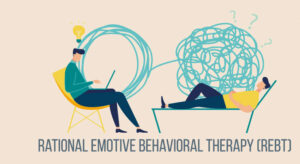Contents
- 1 What Is Break-up?
- 2 What Is Break-up Therapy?
- 3 Benefits Of Breakup Therapy
- 4 Goal Of Break-up Therapy
- 5 Break-ups And Mental Health
- 6 Types Of Therapy For Break-ups
- 7 Is Breakup Therapy Effective?
- 8 Therapist For Helping Cope With Break-up
- 9 How To Find The Right Therapist For Break-up Therapy?
- 10 Conclusion
What Is Break-up?

Breakup typically refers to the end of a relationship between two people. The end of a committed dating relationship between two people is referred to as a breakup. Although divorce, the legal separation of a married couple, is a type of breakup, the term most often refers to the endpoint of an unmarried person’s connection. The term can also refer to the ending of a friendship.
Breakup is often an emotional and stressful time in which feelings of loss, sadness, loneliness, betrayal, anger, and pain are experienced most acutely. These feelings may arise from several sources such as the absence of the partner, falling out of love with them, or realizing that one’s needs are incompatible with the current relationship.
Breaking up is distinct from separation, which occurs when two people live apart, but continue to share a sexual or romantic relationship. A breakup can also be an involuntary process upon the request of one partner (see betrayal). In addition to being a major life event that may result in feelings of loss and sadness, a breakup can result in feelings of shame, trepidation, and humiliation.
What Is Break-up Therapy?
 Breakup therapy is a type of psychotherapy that helps people heal from breakups by following a series of steps. The steps typically include identifying the reasons for the breakup, establishing healthy boundaries to deal with the breakup, and learning how to move forward.
Breakup therapy is a type of psychotherapy that helps people heal from breakups by following a series of steps. The steps typically include identifying the reasons for the breakup, establishing healthy boundaries to deal with the breakup, and learning how to move forward.
Break-up therapy is a form of therapy that focuses on the individual’s feelings about their past or current romantic relationships. This is done in an effort to help people cope with loss after a break-up. A typical session will discuss how the clients feel about their ex and other aspects of their life. The goal of this form of therapy is to help people find closure and move on from the break-up. Clients can work through unresolved issues and learn to see themselves in a more positive light.
Benefits Of Breakup Therapy
The benefits of getting professional help in breaking up with your significant other
- Reduces feelings of sadness and regret
- Helps you understand the reasons for the breakup, which can lessen the anger that you feel toward your partner or spouse
- Increases accountability for actions by encouraging you to take responsibility for your behavior
- Prevents negative coping behaviors such as substance abuse, aggression, overworking, and overspending
- Gives you the chance to talk about something other than your ex so that you can move forward emotionally and focus on your life
Breakup therapy is a form of therapy that focuses on the individual’s feelings about their past or current romantic relationships. This is done in an effort to help people cope with loss after a break-up. A typical session will discuss how the clients feel about their ex and other aspects of their life. The goal of this therapy is to help people find closure and move on from the break-up. Clients can work through unresolved issues and learn to see themselves in a more positive light.
Goal Of Break-up Therapy
 Breakup therapy is a form of counseling that helps people who are going through a breakup. It can help them to understand why the break-up happened and to work through their feelings.
Breakup therapy is a form of counseling that helps people who are going through a breakup. It can help them to understand why the break-up happened and to work through their feelings.
The goal of breakup therapy is to help people to move on from the relationship and to learn how to cope with the loss. It can also help them to understand what went wrong in the relationship and to learn from their mistakes.
Breakup therapy can be helpful for people who are feeling overwhelmed by the breakup. It can provide them with a safe space to express their feelings and to get support. It can be both emotionally and physically draining and sometimes we need a little outside guidance in order to get through the sorrow and pain that follows a breakup. When you’re ready, it can be helpful to talk about your feelings with someone who is trained to listen without passing judgment or giving advice. Break-up therapy is one tool that can help get you back on your feet after this painful experience.
Break-ups And Mental Health

It’s hard to admit, but break-ups can be traumatic and emotionally draining. To cope with the pain after you split with your significant other, seek professional help. Some people want to just “numb out” or suppress their feelings, but this typically doesn’t work in the long run because feelings don’t go away–they come out in other ways, such as through drinking and substance abuse, physical aggression, smoking, or underachieving.
A breakup’s emotional weight is determined by a variety of variables, such as:
- How long the relationship lasted
- How attached you were to your S.O.
- If there was infidelity involved
- The circumstances surrounding the split (e.g., if it was a mutual decision)
- If children were involved and/or shared assets
In order to avoid further pain from breakups, take time for yourself. Accepting your pain can be difficult, but if you keep busy and find healthy outlets, such as journaling or exercise, you will not have time to dwell on the break-up itself.
Types Of Therapy For Break-ups
There are different types of therapy for breakups that can be helpful in moving on from a past relationship. Some of these therapies include cognitive-behavioral psychotherapy, psychoanalysis, rational emotive behavior therapy (REBT), and multimodal therapy.
Cognitive-behavioral psychotherapy
Cognitive-behavioral psychotherapy is one approach that helps people understand the thoughts and feelings that contribute to their emotional responses. This type of therapy can help people identify negative beliefs about themselves and the world that may be contributing to their emotional distress. With this new understanding, people can then work on replacing these beliefs with more realistic and positive ones.
Psychoanalysis
Psychoanalysis is a type of therapy that involves exploring the unconscious mind in order to better understand the motivations behind one’s behavior. It is a long-term process that involves weekly or monthly sessions.
Rational emotive behavior therapy

Rational emotive behavior therapy (REBT) is another form of therapy that helps people make sense of past events and how these past experiences may be affecting their present thoughts, feelings, and behaviors. REBT teaches people to replace irrational beliefs with more reasonable ones. For example, if you were dumped by your significant other because of your infidelity, practicing REBT might help you realize that you weren’t the only person at fault in this situation. You may have made some mistakes, but so did they.
Multimodal therapy
Multimodal therapy focuses on both cognitive and behavioral aspects of behavior. It is a briefer approach to therapy that can help people better manage their emotional responses to a past or present romantic relationship.
Additional forms of therapy for breakups include Gestalt therapy, client-centered therapy, and art therapy.
Gestalt therapy
Gestalt therapy is a type that helps people become aware of themselves through their relationships with others. This approach encourages individuals to communicate honestly with their therapist in order to achieve greater self-awareness and emotional understanding.
Client-centered therapy
Client-centered therapy is another type that focuses on the client’s needs. It allows people to feel more comfortable in their own shoes by putting them at the center of the therapeutic process.
Art therapy
Art therapy has also been found to be helpful for individuals who are struggling with past romantic relationships because it can help people express their feelings through creativity.
Is Breakup Therapy Effective?
 A number of factors affect the success of break-up therapy, such as:
A number of factors affect the success of break-up therapy, such as:
- The age and gender of the client
- How long the couple was together before splitting up
- Whether the breakup was mutual or not
- The severity of symptoms at the beginning of treatment
The type of treatment that is most likely to be effective will depend on a variety of factors, such as the age and gender of the client, how long they were together before splitting up, whether it was mutual or not, and the severity of their symptoms at the beginning of treatment.
Although there is no specific timeline for length of treatment, three months seems to be an average time frame for individuals who are going through a significant life transition, such as losing the main source of support or who are suffering from chronic heartache.
However, if you are struggling with the after-effects of a past relationship for an extended period of time (i.e. more than six months), it’s important to consider getting professional help in order to move on and process these feelings fully.
Therapist For Helping Cope With Break-up
Breakups can be traumatic and emotionally draining. To cope with the turmoil and pain it is best to seek professional help. Some people do not want to go through break-up therapy but prefer to “numb out” or suppress their feelings; this typically does not work in the long run because feelings don’t go away; they come out in other ways, such as through drinking and substance abuse, physical and verbal aggression, smoking, and underachieving.
Getting professional help can:
- Assist you in understanding your feelings around the breakup
- Help you get support from a trained listener who is nonjudgmental and objective
- Give you valuable information about the nature of relationships and breakups
- Help you navigate the process of recovering from a breakup
- Be more effective than self-guided coping methods, such as journaling or taking time off work -help prevent further pain in your life by reducing negative behaviors associated with breakups (e.g., substance abuse)
How To Find The Right Therapist For Break-up Therapy?

There are many factors to consider when selecting a therapist. The first step is to ask yourself what kind of therapy you prefer. There are several types, including cognitive-behavioral psychotherapy, psychoanalysis, rational emotive behavior therapy (REBT), and multimodal therapy. You can also select someone who specializes in working with people who have experienced a breakup.
Once you’ve narrowed down your selection, visit the therapist’s website to see if it provides information about how they work with clients who are coping with breakups. You should be able to find this information easily on their site. If you are not sure whether this approach will work for you, call the therapist’s office and ask to speak with the therapist about their approach and how it might be beneficial for you.
Once you’ve done your research, make an appointment for a consultation where you can meet the therapist face-to-face and get a better understanding of how they work and what they will expect from you during and after your sessions together.
Conclusion
Break-up therapy is a form of psychotherapy for people who have been through a recent or tough break-up. It helps them to process their emotions and move on in the aftermath of being dumped by someone they loved. The best way to get over your ex might be with professional help from a therapist. If you are looking for therapy to get over a break-up. Reach out to our team to and get the best therapy.
If you are looking for affordable Online Counseling MantraCare can help: Book a trial therapy session


